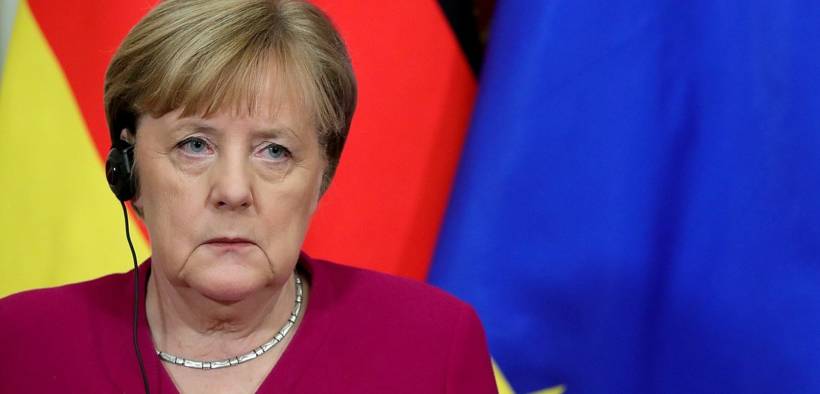US Troops’ Withdrawal Plan and How It Could Impact Geopolitics

“Europe will have to take on more responsibility.”
On Monday, President Donald Trump ordered the U.S military to withdraw 9,500 out of over 34,000 troops from Germany by September, citing that Berlin had owed payment to the North Atlantic Treaty Organization (NATO).
“Germany’s delinquent. They’ve been delinquent for years, and they owe NATO billions of dollars, and they have to pay it. So we’re protecting Germany, and they’re delinquent. That doesn’t make sense,” Trump stated, cited in the Hill.
Germany does not owe the payment, but it does not meet the NATO target to spend two percent of its GDP on defense.
Besides Germany, the U.S will plan to pull out troops from other countries such as South Korea, and Japan, former U.S ambassador to German, Richard Grenell revealed
Troops’ withdrawal has drawn mixed reactions, from appreciation, doubt, to criticism. The next questions will be what some countries are doing to protect themselves without relying too much on the U.S role and whether the pullout has significant implications for global security.
U.S troops and military bases across overseas in numbers
As of April, Japan hosted the largest numbers of active American troops (38,000) followed by Germany (34,000—will be deducted 9,500 by September), and South Korea (24,000), Afghanistan (12,000), data from Defense Manpower data Center revealed.
Small-scale deployments are in Australia, Qatar, El Salvador, Djibouti, Turkey, Jordan, Romania, Belgium, Cuba, and the United Arab Emirates. In the war-torn Middle East alone, the U.S has deployed around 60,000-70,000 troops, a U.S central command said as cited in Aljazeera’s Counting the Cost.
The U.S has operated more than 500 military bases in every part of the world, except Antarctica, 247wst wrote. David Vine, associate professor of sociology at American University, wrote in Politico that Washington allocated US$85 to US$100 billion in the fiscal year 2014 for base and military maintenance cost. The total for those in the warzones could reach US$ 160 to US$ 200 billion.
In August 2019, Trump complained on Twitter that the U.S had paid too much for the security of its Pacific allies. The POTUS stated that Seoul had only paid US$ 990 million and should have paid more for the deployment of U.S troops there, triggering students protests in South Korea against the U.S military presence.
Troops’ withdrawal: Germany was annoyed, Russia welcomed the idea
The pullout has upset Berlin as the Angela Merkel administration admitted not being informed in advance about the plan.
“This is completely unacceptable, especially since nobody in Washington thought about informing its Nato ally Germany in advance,” Peter Beyer, transatlantic coordinator for Merkel, told the Rheinische Post, quoted in BBC.
Russia welcomed Washington’s plan to slash the troops in Europe, claiming that the personnel withdrawal from Germany could help ease the tension in the continent.
“Such steps would undoubtedly help reduce confrontational potential and ease military and political tensions in the Euro-Atlantic region,” Russia’s Foreign Ministry spokeswoman Maria Zakharova told a press briefing, warning that the U.S should not redeploy some of the troops to Poland as it would flare up the tension and ruin the prospect of meeting between Moscow and NATO.
The post-Cold War ties between Russia and NATO has reached its lowest level since Moscow’s annexation of Crimea in Ukraine, the allegation that Russia interfered in the U.S election in 2016 that helped Trump to his unexpected victory, and so on.
Doug Bandow, a foreign affairs expert, has supported the withdrawal of U.S troops, including from Asian nations such as South Korea, adding that the presence of the U.S military was no longer necessary.
“You know today, South Korea has something around 45 times the GDP [and] about twice the population of the North,so there’s no reason why the South cannot build a military sufficient to deter and somehow defeat, if necessary, the North,” the former official during the Ronald Reagan administration told NPR in 2018, explaining that there were around 327,000 U.S. soldiers in South Korea when the cease-fire was signed in 1953.
The pullout from Germany signs that Europe must take responsibility for defending itself without relying too much on in the U.S, as Roderich Kiesewetter, a former German military officer, told DW.
“Europe will have to take on more responsibility,” said Kiesewetter, now parliamentary foreign policy expert for Angela Merkel’s Christian Democratic Union party, without specifying more detail about what Europe should take to defend itself.
Is the U.S removing its military personnel?
The troops’ withdrawal may benefit Russia and China, which are trying to exert their influence globally. However, the U.S does not seem to entirely pull out its troops based on the Middle East case.
Foreign Policy in 2019 wrote that Trump promised to pull out troops from Syria in 2018. Then at the end of 2019, the White House considered sending 14,000 troops to the Middle East, despite the Pentagon’s denial.
The U.S reluctance to remove troops from the Middle East is due to the fear of Iran’s influence as well as the need to protect Washington’s main allies (Saudi Arabia and Israel), not for the sake of peace in the region.
“We’re going to be there, and we’re going to be staying– We have to protect Israel. We have to protect other things that we have. But we’re- yeah, they’ll be coming back in a matter of time,” Trump spoke to Margaret Brennan on CBS’s “Face The Nation” in early 2019 when asked about the plan to remove 2,000 troops.

















